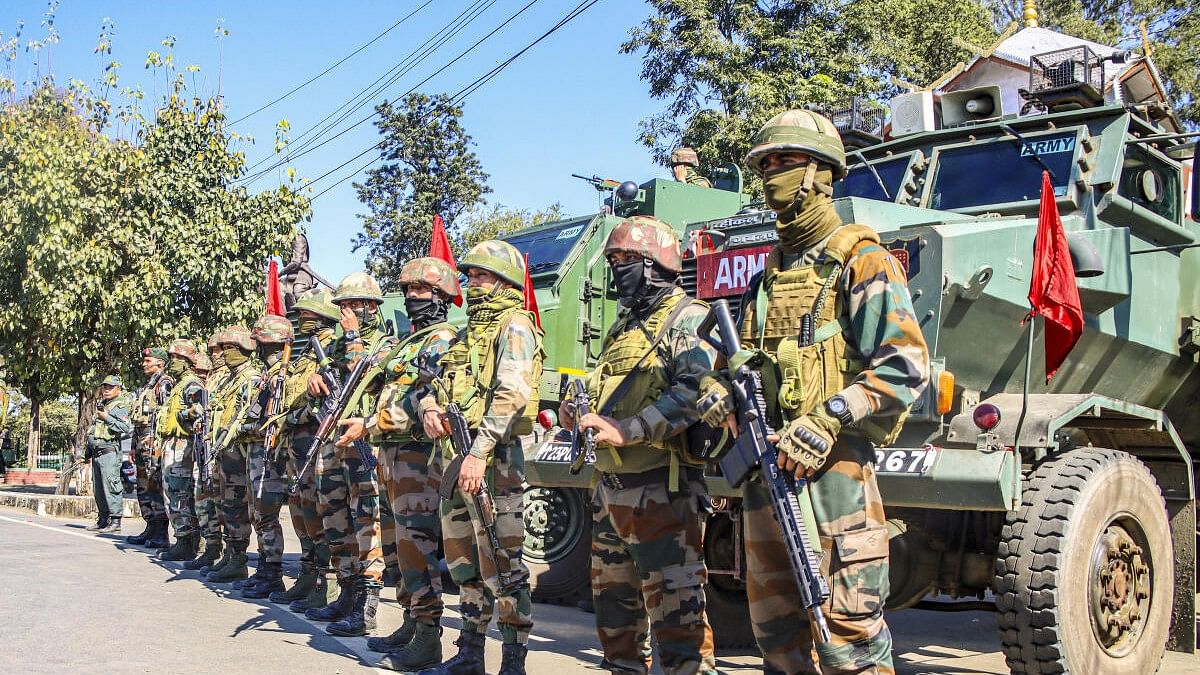
Security personnel deployed to maintain law and order amid curfew imposed in view of recent violence in Manipur. (Representative image)
New Delhi: The Supreme Court on Wednesday granted eight weeks to the Manipur government to respond to a plea challenging the system of Inner Line Permit (ILP) in the state.
Manipur is the fourth state after Arunachal Pradesh, Nagaland and Mizoram where the ILP regime is applicable. To visit ILP-regime states, outsiders, including people from other states of the country, need permission.
A bench of justices Hrishikesh Roy and SVN Bhatti gave time to Manipur after the counsel for the state government sought time.
The top court on January 3, 2022 had issued notices to the Centre and the Manipur government and others on a plea filed by an organisation called 'Amra Bangalee'.
The plea contended that the ILP provides unrestrained power to the state to restrict entry and exit of non-indigenous people or those who are not permanent residents of Manipur.
"The draconian ILP system is fundamentally opposed to the policies of social integration, development and technological advancement in the area beyond the Inner Line, apart from hampering tourism within the state, which is a major source of revenue generation for these areas," the organisation said.
The plea has also challenged the Manipur Inner Line Permit Guidelines, 2019.
It stated that the 2019 order violates fundamental rights of citizens guaranteed under Articles 14, 15, 19 and 21 of the Constitution since it grants unqualified power to the state to restrict entry and exit of non-indigenous people.